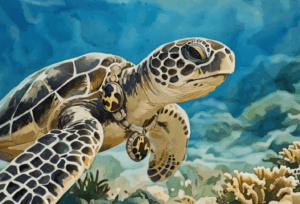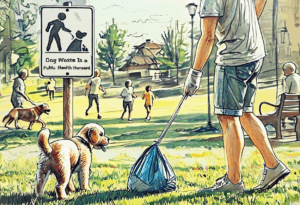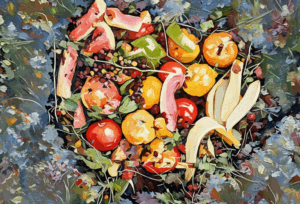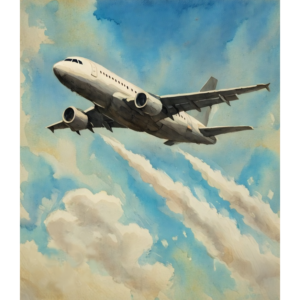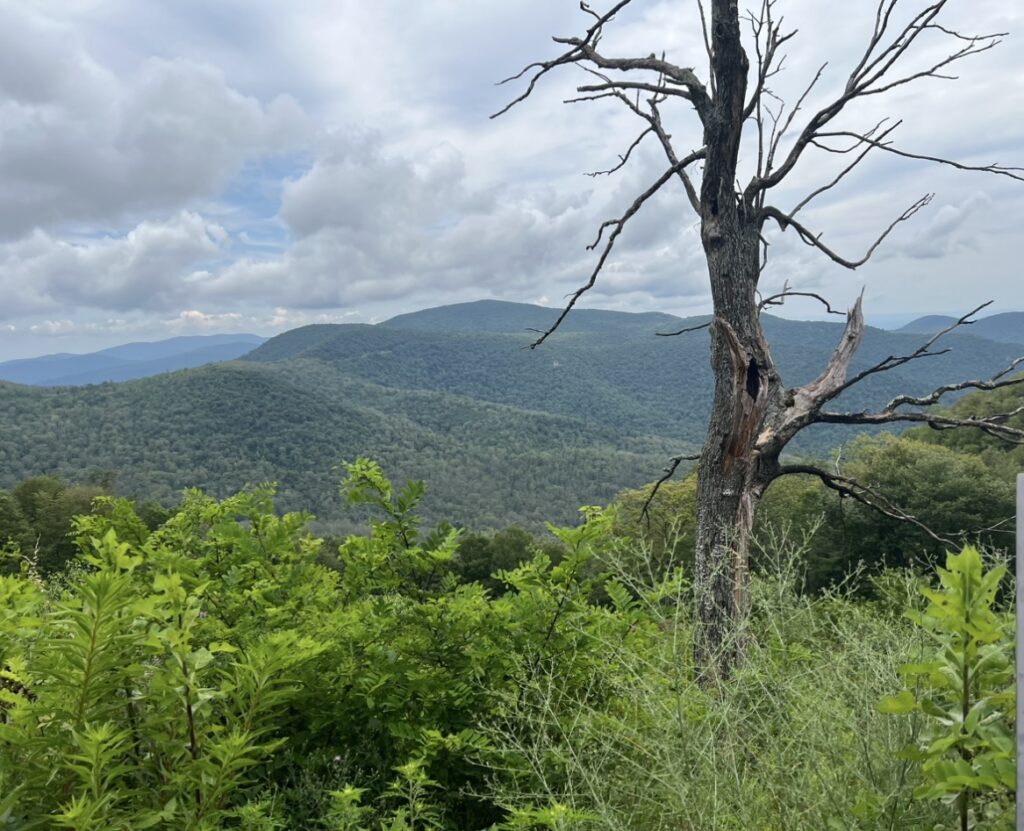
I miss snow. That’s all I knew about climate change when I was a child, the disappearing snow. I didn’t know about the melting of glaciers, the morality charts, or even the flooded streets of distant towns. I loved snow in a way not even I could understand, seeing my predominantly green world change into a veil of white. I think it taught me the constant changing of nature, how a vibrant green could change to be shadowed by white. That cruel beauty taught me, but it didn’t prepare for climate change, the most apparent change of the 21st century. The change everyone has heard of, yet it is still not truly acted upon. Climate change will continue to trade artificial life for our Earth unless humanity takes a stand for nature.
Global warming’s mascot is most certainly the polar bear, a snow dwelling “beast”. Polar bears aren’t just plastered on climate change posters for a reason, they miss the snow too. That once a year snowfall I admired as a child is a polar bear’s salvation, their home. Moreover, due to climate change their homes have begun melting. Current polar bear population counts can account for the effects of higher temperatures. Studies report, “Forty percent. That’s the stunning population loss for polar bears in the southern Beaufort Sea. The news comes from a new study linking the dramatic decline in this polar bear subpopulation in northeast Alaska and Canada to a loss of sea ice due to climate change” (“Polar Bear Population”). A polar bear wouldn’t be able
to survive in my backyard on a normal summer day, just like I wouldn’t be able to survive in its normal environment. But soon, polar bears will be forced to live in habitats equivalent to Florida summer retreats with boiling temperatures. Climate change has caused vacancies all around the world but the absence of snow isn’t just disappointing because of its looks, it affects other animal livelihoods as well.
Temperatures are a trigger for hibernation, so if temperatures fail to lower, how will nature’s circadian rhythm flow smoothly? Tests have already shown that animals are in fact responding to climate change and flaming temperatures both behavioraly and physically. The National Institute of Health details, “Hibernating mammals may be particularly susceptible to changes in climate through phenological shifts because they have a relatively short active season in which to mate and gain enough weight to survive the following winter.” Climate change is triggering new natural selection that favors heat. An optimist may say that climate change is the inspiration for a new evolution on Earth, but the drawbacks for those experiencing said evolution are much too costly. For humans, climate change is just “an issue”, something we’ll deal with eventually, something that couldn’t do us any harm, because we created it, right? But to animals, climate change is directly interfering with their livelihoods and they cannot wait any longer, we must help them. For now, the only chance animals have is to change with the cruel dictator who is forcing said change. Unless we want global warming to become our future, actions must be taken to prevent it, because soon it may affect even spaces outside of Earth.
Space has been affected by climate change as well, the one distant place that is seemingly forgotten in the discussion of climate change. Both space junk and climate change are linked due to carbon’s effect on Earth’s density and pull. As the New York Times wrote, “A study presented last month at the European Conference on Space Debris says that the problem has been
underestimated, and that the amount of space junk in orbit could, in a worst-case scenario, increase 50 times by 2100.” Climate change is not only affecting the land we walk on, it’s now affecting the space outside our atmosphere, an even bigger indicator that change must come now. Soon Earth will be closed off by space junk; an enclosed incinerator for the rest of humanity. We are simply the coal that climate change is inflaming, so in the end, we’re burning too.
Climate change is not just a threat to non-human nature, it is directly affecting us, interfering with our lifestyles, occupations, and health. Nature is not a foreign species to us humans, it is us, through and through. So, if nature is declining, so are we. Health risks such as dehydration, stroke, and triggered respiratory illnesses have seen an increase in the past decade due to global warming; they continue to take lives (“Climate Change Impacts”). In the near future, you may not be able to watch your favorite sports due to heat risks for participating athletes. Or let’s be positive, maybe you’ll have an increased spice tolerance (sorry to get your hopes up, but this isn’t true). Even so, humanity does acquire better assets to be able to cope with climate change like our minds and comprehension skills. But even with the help of our great minds and abilities, climate change will still impact us greatly, enforcing the need for immediate climate action.
We may not be able to eliminate climate change completely, but we can stop its growth. Our footsteps directly impact the ground we walk on, as do our actions. With just a few steps, a few actions, you can make a difference for the soil you walk on. If we can come together as a community and all walk on the same path, combined, we can create a footprint even larger than the footprint climate change has imprinted onto Earth. To combat climate change we must unite with nature, taking care of it as one of our own. You can contribute to climate action by simply changing aspects within your home. For example, start eating more vegetables(naturally
produced foods), invest in solar energy(does not use fossil fuels for energy), become an aspiring engineer set on preventing global warming. You must be the leader of change if you wish for it to happen. So, whether you’re a scientist, a baker, or a writer, you can aid the battle against climate change. Without humanity’s change, climate change will force its credence upon us by the end of this century.
Climate change will compete our past with its new future and the changes will be drastic. If we don’t take action, animals we once knew will go extinct, nature won’t be able to grow and thrive, Earth will be trapped in a cloud of space junk (humanity’s debris), and our own population will decrease by drastic numbers. Fossil fuels, the cause of climate change, will eventually turn us into fossils. Greenhouse gas doesn’t seem so “green” when you research the loss of life and nature it has caused.
The one thing I truly know is Earth would be able to bring snow back again, only once climate change stops burning our lands and diseasing our air. One cannot heal as they are being burned, but, they may recover after the fire. That’s why Earth needs our help to prevent climate change so we can allow it time to heal. Aid must come soon with the impatient being climate change is. Behind change there is only the backlash that triggered such change. But, behind hopes, there is only a mind determined to fix said change. Great minds, with hopes, must come together to unify our brilliant Earth.
Works Cited
— “Climate Impacts on Human Health | Climate Change Impacts | US EPA.” Climate Change, EPA, https://climatechange.chicago.gov/climate-impacts/climate-impacts-human-health. Accessed 5 June 2024.
Falvo, Caylee A., et al. “Seasonal climate effects on the survival of a hibernating mammal.” Wikipedia, 27 Feb 2019, https://www.ncbi.nlm.nih.gov/pmc/articles/PMC6468137/. Accessed 5 June 2024.
O’Callaghan, Jonathan. “What if Space Junk and Climate Change Become the Same Problem? (Published 2021).” The New York Times, 24 May 2021,
https://www.nytimes.com/2021/05/12/science/space-junk-climate-change.html. Accessed 5 June 2024.
— “Polar bear population decline a wake up call for climate change action.” WWF, https://www.worldwildlife.org/stories/polar-bear-population-decline-a-wake-up-call-for-c limate-change-action. Accessed 5 June 2024.
The views and opinions expressed are those of the authors and do not necessarily reflect nor represent the Earth Chronicles and its editorial board.
